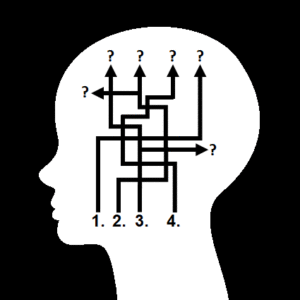 I like to think of myself as a rational decision maker. I define the scope of a given problem and the desired outcomes. I examine the available options and delineate the pros and cons. I weigh the options and then make the optimal choice. But I had my eyes opened years ago when my husband and I attended a seminar entitled The Emotional Side of Decision Making by the Stanford Business School’s Baba Shiv.
I like to think of myself as a rational decision maker. I define the scope of a given problem and the desired outcomes. I examine the available options and delineate the pros and cons. I weigh the options and then make the optimal choice. But I had my eyes opened years ago when my husband and I attended a seminar entitled The Emotional Side of Decision Making by the Stanford Business School’s Baba Shiv.
At the time, the prevailing wisdom on decision-making accounted for two factors: the hard data (e.g., size, style, price, performance) and “soft” factors (e.g., personal preferences, perceived status, one’s emotional state at the time). But Dr. Shiv’s research revealed that emotions are a separate – and crucial – element in decision making. In particular, at some point in the decision-making process, folks make emotional commitments to their choices. Thereafter, all further input runs through filters that support these subconsciously rendered “emotional decisions.” And this mechanism holds true for men and women.
While eye-opening, this phenomenon makes sense when we consider that the brain is fundamentally wired for keeping us alive. If we’re being chased by a wild beast intent on making us its dinner, we don’t want to spend a lot of time deliberating on the optimal path when arriving at a fork in the road. We want to commit and fully invest in the chosen direction.
Dr. Shiv also demonstrated that we make these “emotional decisions” relatively quickly. As a case in point, researchers took a close look at student evaluations of college-level courses. Such evaluations are routinely administered at the conclusion of the semester. But researchers decided to take a preliminary read on student satisfaction after one lecture, after 10 minutes of one lecture, and after a 10-minute video in which the volume was muted. It turned out that there was a very high correlation between all of these readings. In other words, professors have a really short amount of time to make a good impression!
In The Paradox of Choice: Why More is Less, Dr. Barry Schwartz offers some other surprising insights about decision-making:
- We tend to give higher weight to a vivid personal story about a company’s offering than an independent analysis based on thousands and thousands of readers (a la Consumer Reports).
- We judge the value of an item in relation to “anchor” items. An $800 suit will seem like a bargain in relation to $1500 suits, but overpriced when surrounded by $500 suits. Ergo, companies often create a high-priced model for which they may get few takers so that their lesser priced items will seem all the more attractive.
- We love discounts and hate surcharges. Ergo, if we’re planning to spend $100 cash for an item, we’re happier being told that we’d get a $10 discount for cash from the regular $110 price than to find out that purchasers on credit will be assessed a $10 premium over the regular $100 price. Yet we’re still forking over the same $100!
- We tend to be risk-averse with respect to potential gains and loss-averse with respect to potential losses. Apparently, we don’t get all that much incremental satisfaction from maximizing a potential payout. But if we stand to lose something, we’re much more likely to engage in risky behavior to avoid taking the hit.
- In a similar vein, we don’t handle “sunk costs” very well. If we’ve paid money for something and it turns out to be a losing proposition, we’ll stick with it even if it causes us grief. This insight made me chuckle. It reminded me of a time when my husband and I went to a movie that we absolutely hated. I wanted to leave after the first hour; he wanted to get his money’s worth and stay to the end!
- Once something has been given to us, we are disinclined to give it back or trade it for something else. It becomes “ours.” That’s why companies don’t worry so much about offering money-back guarantees; they know that few people will take advantage of them!
All of the foregoing suggests that we aren’t as rational in decision-making as we might think we are. My take-aways: I’m going to be a little more aware of how companies market their wares to me. I’m going to pay a bit more attention to the inner workings of my mind and challenge myself with the cold, hard facts of a given situation. If I’m especially insightful, I may just notice what my gut is telling me… and why. And if I’m not happy with a decision, I’ll encourage myself to move on!